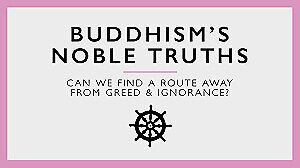Mindful Monday Meditation class offered weekly from 12 noon until 12:35 p.m. is open to all, by donation (to the Family Food Pantry). We have been meeting weekly since January, 2019.
————————-
In our guided practice sessions, we are currently exploring 10 qualities of the heart as taught by the Buddha. (You don’t have to call yourself a Buddhist to benefit from this, it is being taught as a secular, non-religious practice and is relevant and beneficial for all human beings who want to create lasting sources of happiness and freedom).
Called the Paramis, these practices help us to bring Mindfulness into all aspects of our lives, individually and in relationship with others, both on and off the proverbial cushion.
I am using these sources as references:
Creating a life of integrity: in conversation with Joseph Goldstein Gail Andersen Stark 2020
Parami: Ways to cross life’s floods Ajahn Succito 2012 https://www.amaravati.org/dhamma-books/parami-ways-to-cross-lifes-floods/
A Whole Life Path: a lay Buddhist’s guide to crafting a dhamma-infused life Gregory Kramer 2017
Generosity, the first of these 10 virtues, reminds us to “let go” as we release ourselves from the restrictions of fixed views and opinions. We can practice letting go of material things, and sharing what we have. The intention and the practice of letting go creates space for new experiences and insights, and opens the door to greater freedom and ease.
Generosity serves as a basis and preparation for the path of awakening. It underlies and quietly supports the entire process of freeing the mind from the restrictions of greed, hatred/aversion and delusion.
Generosity affirms our common humanity, allows for a wider perspective, and encourages us to let go of narrow and limiting self-views and references.
It is just as important to offer generosity to ourselves (in how we speak to and of ourselves when we make mistakes, when we are confused or overwhelmed) as it is to offer it to others. Being kind and compassionate rather than critical and judgmental, to ourselves and to others, is a form of generosity.
Ethical Conduct or Morality or “doing no harm” is the second of the Paramis. We are reminded that Mindfulness doesn’t exist in a vacuum, but is intimately connected with everything we do and say and think. Our actions can either support or interfere with deepening mindfulness.
Wise speech is an aspect of ethical conduct. Before speaking out,loud to others, or when listening to our inner speech, we can ask:
Is this kind? Is it beneficial? Is it timely? Is it necessary?
We can aim towards speech that is not harsh, that doesn’t include gossip or idle chatter.
In this way we free the mind from unnecessary distraction, and allow ourselves to settle into a more spacious and easeful state of being.
Abstaining from Stealing is another aspect of Ethical Conduct. I have heard it described as “not taking what is not freely given”. What this means to me is that I don’t “borrow” things or ideas from others without permission. I don’t assume that I can use something that is not mine. I credit the one who wrote or created something I post.
Being aware of what is “ours” and what is not can extend to acknowledging that we are living on stolen land, that our lives benefit from the labor of other people (past and present), that those people are oppressed and marginalized, and that we can make an effort to come to terms with that reality.
These guidelines aren’t a simple matter of “right or wrong”; rather, they encourage us to pay closer attention to the gross and subtle examples of ethical and unethical conduct that can easily be hidden, or rationalized, or simply taken for granted as the “norm”.
We can bring mindfulness to our actions and thoughts as we root out tendencies that are harmful and that don’t serve us or the greater good. We can find ways to make reparations as needed and as possible.
As mindfulness guides us towards wholesome actions (speech, abstaining from stealing, generosity), the benefits of those actions increase our ability to be mindful.
Later, we’ll examine the other three major factors included in Ethical Conduct: Abstaining from Killing, from Sexual Misconduct and from Excessive Use of Intoxicants. Stay tuned!
__________________________________________________________________________
If you’d like to be on the mailing list for Mindful Monday Meditation, please send your email address to: debennis50@gmail.com. Thank you.
Generosity, the first of these 10 virtues, reminds us to “let go” as we release ourselves from the restrictions of fixed views and opinions.
Ethical Conduct or Morality or “doing no harm” is the second of the Paramis. We are reminded that Mindfulness doesn’t exist in a vacuum, but is intimately connected with everything we do and say and think. Our actions can either support or interfere with deepening mindfulness.

